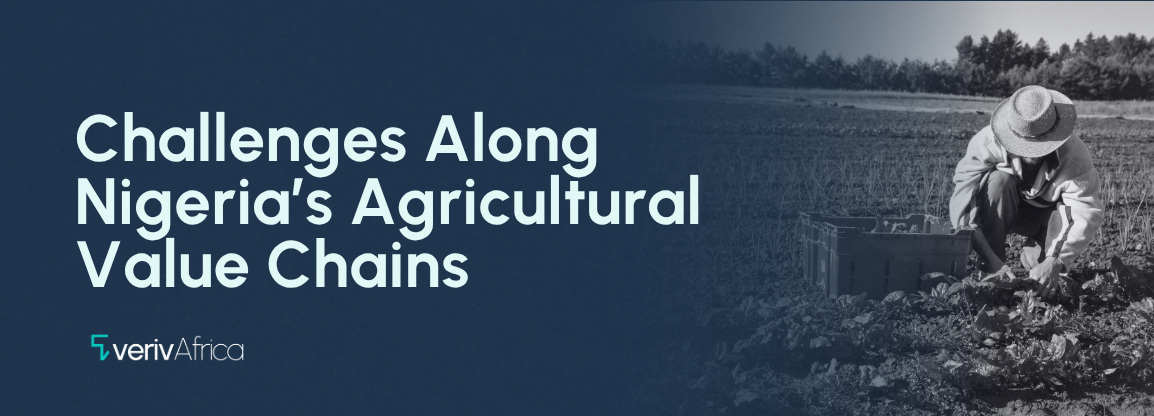The notion that 'AI is going to take our jobs' has become a pervasive concern in Nigeria and globally. The democratisation of artificial intelligence, signalled by the growing popularity of Generative AI, has only intensified the anxiety surrounding AI-driven job displacement. While these concerns are not entirely unfounded, the prevailing narratives appear to oversimplify the complex issues at play.
Will AI Take Our Jobs?
Maybe. According to a Goldman Sachs report, AI could replace about 300 million full-time jobs. Similarly, a study by MIT and Boston University predicts that AI could displace up to two million manufacturing workers in the United States by 2025. The McKinsey Global Institute also estimates that by 2030, approximately 375 million workers worldwide, about 14% of the global workforce, may need to transition to new careers due to advancements in digitisation, robotics, and AI.
Real-world examples illustrate these shifts better. In Dongguan City, China, Changying Precision Technology Company reportedly replaced 90% of its human workforce with machines, leading to a 250% increase in productivity and an 80% reduction in defects. Additionally, China is at the forefront of developing fully automated container terminals, showcasing the potential for AI-driven efficiency. Numerous companies have cited AI adoption as the primary reason for their workforce reduction. For example, Amazon has reportedly incorporated over 750,000 robots into its workforce, reducing its global headcount by over 100,000 workers. Similarly, according to reports, Google has laid off over 12,000 employees due to adopting AI technologies. Specifically in Nigeria, as of February 2024, 13 Deposit Money Banks (DMBs) in Nigeria had reportedly integrated AI-powered chatbots into their services. Although there is no available data to directly link this adoption to job losses in the banking sector, it can be inferred that these banks increasingly rely on AI to perform tasks traditionally handled by human customer care representatives. It is also projected that the full adoption of AI technologies in Nigeria’s agricultural sector could potentially lead to the loss of over 20 million jobs.
It is, however, not all doom and gloom for the labour force. Like technological advancements before it, AI will create entirely new professions and industries, some unheard of or even beyond our current level of imagination. For example, AI has given rise to new job categories that did not exist 50 years ago, such as data scientist, big data specialists, AI engineer, and machine learning specialist. According to the World Economic Forum, these roles are among the fastest-growing professions, highlighting the significant impact of AI on the job market. AI is also driving the growth of new industries, including robo-advisory, personalised medicine, self-driving cars, climate modelling, intelligent tutoring, and precision agriculture. These emerging fields are transforming existing sectors and creating new job opportunities and startups. One notable example is the deployment of AI solutions in flood forecasting to help communities worldwide better anticipate and prepare for the effects of climate change. AI is being used in agriculture to provide customised advisory services for precision agriculture, supply chain management, and real-time monitoring and forecasting to support food security measures. In health and medicine, AI deployment has led to advancements in precision imaging, provision of personalised mental health support, predictive and anticipatory care, etc. In financial services, with the integration of artificial intelligence and machine learning technologies, robo-advisors can provide more personalised investment advice to clients. The developing industries are also beginning to attract regulatory attention, which shows the government’s faith in the industry’s potential. For instance, the Nigeria Securities and Exchange Commission issued the Robo Advisory Services Rules in 2023 to regulate the sector. This move indicated government recognition of the potential of robo-advisory services, which are projected to reach US$9.34 Billion in assets under management in Nigeria by 2028, growing at an annual rate of 18.6%. The number of users is expected to reach 635,100 by 2028, according to Statista.
Artificial intelligence also opens up new opportunities for governance, ethics, policy and compliance professionals in the field of AI governance. As AI becomes more pervasive, there is a growing need for workers with expertise in AI ethics and governance, with an increasing demand for roles like AI ethicist, data protection officer, AI policy analyst, and cybersecurity specialists with expertise in AI technology. In a 2021 study by IBM, 75% of executives ranked AI ethics as important, growing from less than 50% in 2018.
These examples demonstrate how AI transforms various industries, from manufacturing to finance. This dynamic is, however, not new; technological advancements have consistently reshaped the job market throughout history. History has shown that jobs evolve. Certain roles become obsolete while new ones develop. A study by economist, David Autor, reveals that more than 60% of jobs in the United States in 2018 did not exist in 1940.
However, a 2024 study by David Autor finds that on net, particularly since 1980, technology has replaced more U.S. jobs than it has generated. According to Autor, there is a faster rate of automation and a slower rate of augmentation from 1980 to the present than from 1940-1980, slowing down the net rate of job creation.
Looking Forward: Maximising AI Workforce Transformation Potential
While there are a lot of myths about AI and the future of work, one truth is that we are still in uncharted territory regarding AI's impact on the job market. It is a different time, and AI is a different kind of technology. Even the most advanced AI research cannot accurately predict the full extent of AI's impact on human life and the future of work.
Also, the dynamics of AI's job market impact will vary greatly depending on factors like job type, industry, and geographical location. For instance, administrative/clerical jobs are more vulnerable to automation than creative and knowledge-intensive professions or skilled trades and craftsmanship (e.g. electricians, plumbers, carpenters etc). So, it is unlikely that AI will replace a plumber in Ikorodu, Lagos, anytime soon.
Moreover, the impact of AI on foreign job markets, for which we have data, may differ substantially from Nigeria's, given our country's unique characteristics. For example, adopting AI in Nigeria, a less technologically advanced economy, may be slower, potentially leading to a more gradual pace of job displacement. However, this slower adoption does not diminish the significant threat that automation and AI pose to job security in sectors like the public service. As the country's largest employer of labour, the public service is particularly vulnerable to AI-triggered job displacement due to the prevalence of routine, repetitive, and predictable tasks that are easily automated, putting many jobs at risk.
Another truth is that AI is inevitable. It is no longer a matter of if, but when. The International Finance Corporation projects that by 2030, 28 million jobs in Nigeria and 230 million in Sub-saharan Africa will require digital skills.
According to the 2025 Future of Jobs Report, AI and information processing technology trends are expected to displace 9 million jobs while creating 11 million new jobs. Additionally, the proportion of tasks performed by humans is predicted to decrease from 47% in 2025 to 33% by 2030 with certain sectors experiencing more significant changes than others. The oil and gas and financial services sectors for example are expected to undergo the most substantial shifts, while medical and healthcare services, government and public sector will experience the least change.
It is therefore essential to anticipate AI’s potential impact on the labour market and utilise the present to prepare for the future. The government must take the lead in developing policies that promote responsible AI development and AI workforce integration. The current Nigerian Labour Act, enacted in 1971, has been described by the International Labour Organisation as inadequate for addressing the modern realities of the Nigerian labour market. One major limitation is its application only to blue-collar employees, leaving others without protection. The government should also invest in education and re-skilling programs, enabling workers to develop the necessary skills for an AI-optimized workforce. Reports show that only a low percentage of households in Nigeria can afford to train members of the household to develop the required digital skills.
Although it is commendable that the draft Nigerian AI strategy aims to equip at least 70% of Nigeria's young workforce (16-35 years) with AI-related skills and knowledge, simply having a strategy is not enough; implementation is crucial.
Notwithstanding the government’s significant role, individuals must also take responsibility for their futures. Rather than viewing AI as a threat, we should see it as an opportunity to upskill, reskill, adapt to new roles and venture into new sectors. Instead of fixating on job creation or destruction, the focus should shift to AI workforce transformation potential, how machines can augment human strengths and how humans can enhance machines. For example, AI has been reported to make workers more productive and improve general work quality. AI has also surpassed human performance in tasks like image classification, visual reasoning, and English understanding, although still lagging behind in visual commonsense reasoning and planning, and “humanlike” writing. Given these developments, it's not surprising that 93% of Nigerian employers surveyed in the Future of Jobs Report 2025 plan to implement strategies to reskill and upskill their existing workforce to collaborate more effectively with AI. 64% of these employers also plan to hire new employees with skills to better work alongside AI.
The verdict is: AI is here to stay and it is up to us to stay ahead of it by adapting, upskilling, and harnessing its powers to augment our abilities .
References
Abdulquadri, A., Mogaji, E., Kieu, T., & Nguyen, N. (2021). Digital transformation in financial services provision: A Nigerian perspective to the adoption of chatbot. Journal of Enterprising Communities: People and Places in the Global Economy. Retrieved from https://gala.gre.ac.uk/id/eprint/30005/8/30005%20MOGAJI_Digital_Transformation_in%20Financial_Services_Provision_2020.pdf
Bailey, B. (2023, April). AI growth threatens Nigeria’s fragile job market. Business Day. Retrieved from https://businessday.ng/business-economy/article/al-growth-threatens-nigerias-fragile-job-market/
Chiroma, H. (2024, June). Transition to artificial intelligence may cost 20 million Nigerians jobs. Daily Trust. Retrieved from https://dailytrust.com/transition-to-artificial-intelligence-may-cost-20-million-nigerians-jobs/
CNBC. (2023, December). Google likely to layoff 30,000 employees post new AI innovation. Retrieved from https://www.cnbctv18.com/education/google-likely-to-layoff-30000-employees-post-new-ai-innovation-18662731.htm
Goldman Sachs. (2023, April). Generative AI could raise global GDP by 7%. Retrieved from https://www.goldmansachs.com/insights/articles/generative-ai-could-raise-global-gdp-by-7-percent.html
Gushup. (2024, March). How conversational AI is reshaping businesses in Nigeria: A guide to the digital-first revolution. Retrieved from https://www.gupshup.io/resources/blog/how-conversational-ai-is-reshaping-businesses-in-nigeria-a-guide-to-the-digital-first-revolution
IBM. (2021). AI ethics in action: An enterprise guide to progressing trustworthy AI. Retrieved from https://www.ibm.com/thought-leadership/institute-business-value/en-us/report/ai-ethics-in-action
International Finance Corporation. (2021). Demand for digital skills in Sub-Saharan Africa: Key findings from a five-country study (Côte d’Ivoire, Kenya, Mozambique, Nigeria, and Rwanda). World Bank Group. Retrieved from https://documents1.worldbank.org/curated/en/099614312152318607/pdf/IDU0b36e9e030767f0417e0afb806e2ffdf1e8bf.pdf
Javelosa, J., & Houser, K. (2017, February). This company replaced 90% of its workforce with machines. Here's what happened. Retrieved from https://www.weforum.org/stories/2017/02/after-replacing-90-of-employees-with-robots-this-companys-productivity-soared/
Lacoviello, M. (2023, April). How does artificial intelligence create new jobs? Forbes. Retrieved from https://www.forbes.com/councils/forbesbusinesscouncil/2023/07/26/how-does-artificial-intelligence-create-new-jobs/
Manyika, J., Lund, S., Chui, M., Bughin, J., Woetzel, J., Batra, P., Ko, R., & Sanghvi, S. (2017, November). Jobs lost, jobs gained: What the future of work will mean for jobs, skills, and wages. McKinsey Global Institute. Retrieved from https://www.mckinsey.com/featured-insights/future-of-work/jobs-lost-jobs-gained-what-the-future-of-work-will-mean-for-jobs-skills-and-wages
NCAIR. (2024). National artificial intelligence strategy. Retrieved from https://ncair.nitda.gov.ng/wp-content/uploads/2024/08/National-AI-Strategy_01082024-copy.pdf
Ogunleye, I. (2021, December). Artificial intelligence for economic development in Nigeria. Retrieved from https://citrispolicylab.org/wp-content/uploads/2021/12/Artificial-Intelligence-for-Economic-Development-in-Nigeria_Ifejesu-Ogunleye.pdf
Dizikes, P. (2020, May). How many jobs do robots really replace? MIT News. Retrieved from https://news.mit.edu/2020/how-many-jobs-robots-replace-0504
Ozibo, R. (2024, November). Nigeria’s labour act insufficient for modern workforce protection – ILO. Nairametrics. Retrieved from https://nairametrics.com/2024/11/13/nigerias-labour-act-insufficient-for-modern-workforce-protection-ilo/
Sharma, G. (2023, April). Second largest employer Amazon opts for robots, replacing 100,000 jobs. Retrieved from https://content.techgig.com/technology/second-largest-employer-amazon-opts-for-robots-replacing-100000-jobs/articleshow/109289650.cms
World Economic Forum, (2025, January). The Future of Jobs Report 2025. Retrieved from https://reports.weforum.org/docs/WEF_Future_of_Jobs_Report_2025.pdf
Yusuf, A. (2024, October). How artificial intelligence is revolutionizing the Nigerian job market: Unveiling the secrets. Host Africa. Retrieved from https://www.hostafrica.ng/blog/technology/how-ai-is-changing-the-job-market/#:~:text=Moreover%2C%20AI%20can%20also%20drive,business%20opportunities%20and%20generate%20employment

.jpg)








